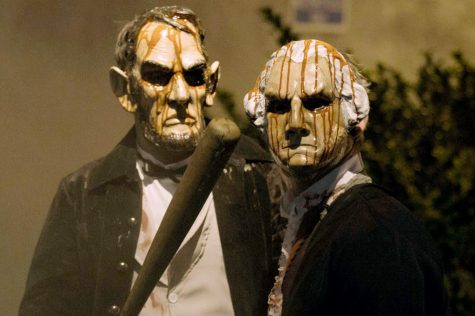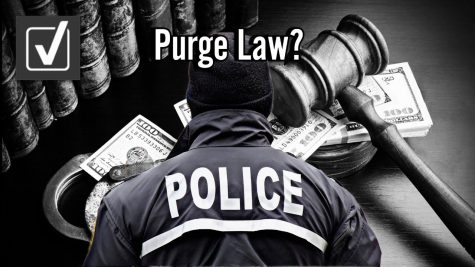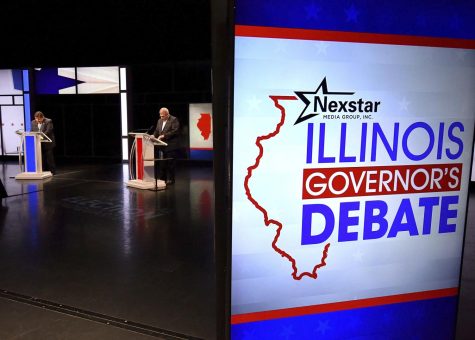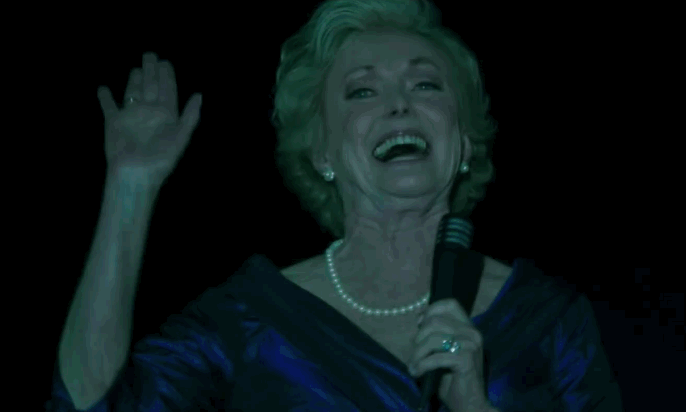Will the End of Cash Bail Start ‘The Purge’? Consider Your Source
October 11, 2022
Will Illinois turn into “The Purge” at midnight New Year’s Eve?
Will it be the start of the end of the world?
The idea that the Prairie State could shift into the dystopian world of the 2013 movie “The Purge,” in which there is one day of lawlessness without emergency services, is the argument one political party is pushing through recent TV commercials about a law scheduled to take effect on Jan 1, 2023.
Critics of the law state that instead of a single day, lawlessness would simply become a new way of life.
The possibility – however unlikely – already is causing worry and fear among some voters and high school students too young to vote.

Should people be worried?
What is a “purge”?
What could be the result of this controversial proposed law?
The definition of purge is “to exonerate someone; to clear someone of guilt, charges, or accusations.” Ironically, while the law set to start Jan. 1 isn’t called the “purge” law, it could take on that meaning.

Officially titled the SAFE-T Act both proponents and opponents of the law seem confused about what it will actually do. It doesn’t help those trying to make the law make sense, the fact that no other state prior to Illinois has attempted such sweeping changes, specifically to possibly ending cash bail for up to 12 different offenses or at least placing the decision to detain a person accused of a crime through arrest at the discretion of a judge.
Proponents say the law will enact needed changes in police training policies, police accountability, transparency in policing and strengthen the rights of the accused.
Opponents contend the law as proposed means crimes like robbery, kidnapping, arson and second-degree murder would no longer trigger cash bail.
It seems that while both men running for Illinois governor have opposing views on the SAFE-T Act, even they seem confused about the proposed law.
Recently, the two major gubernatorial candidates took part in a public debate. Both answered questions about this issue.

According to a WGN-9/Nexstar Oct. 6 article, “Illinois Governor Debate: Pritzker, Bailey Spar on Safe-T Act, Economy, Abortion,” the Democratic and Republican candidates had different takes on public safety.
The article said of incumbent Gov. J.B. Pritzker, “Pritzker previously said he was willing to consider making some changes to the bill. During the debate, Pritzker was not able to name a specific change he would make, but he did say clarifications in the law were needed.”
By contrast, Pritzker’s challenger State Sen. Darren Bailey, the article said, had a different read of the late. “Bailey,” the article read, “has called for the repeal of the SAFE-T Act as a whole. However, eliminating the SAFE-T Act would also get rid of new programs for police like mental health screenings for officers and the use of body cameras statewide.”
Bailey is quoted in the debate making the statement, “The SAFE-T Act was concocted at 4 a.m. in the wee hours of the morning without any police involvement at all. We need to come and sit at the table and deal with the real problems.”
Before such a sit-down takes place, there will be a statewide election Nov. 8 in which voters will determine whether Pritzker or Bailey will either make changes or repeal the SAFE-T Act.
The other thing that both proponents and opponents seem to agree upon two months ahead of the law taking effect is that the SAFE-T Act is confusing and needs to be cleared up to determine if it actually promotes public safety.










